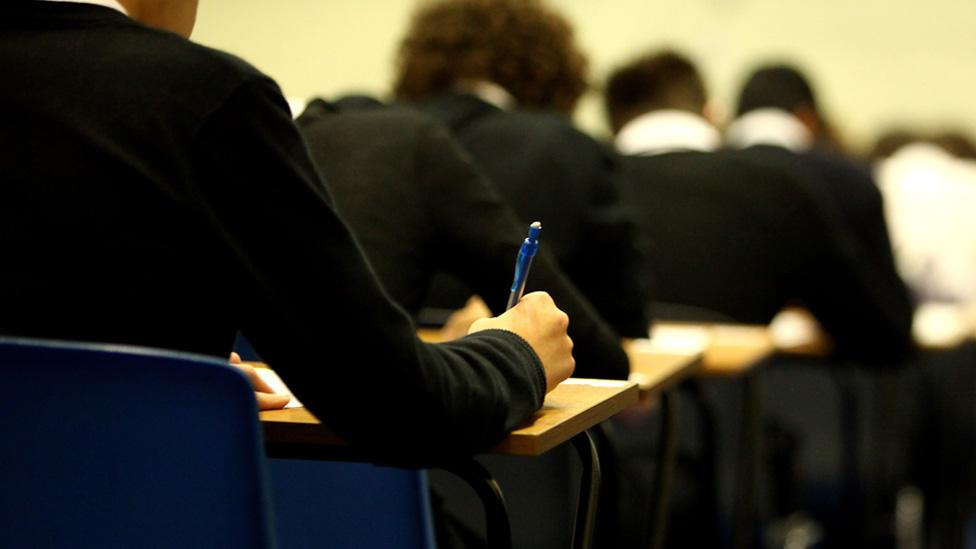Coronavirus: How can parents help with home schooling?
- Published
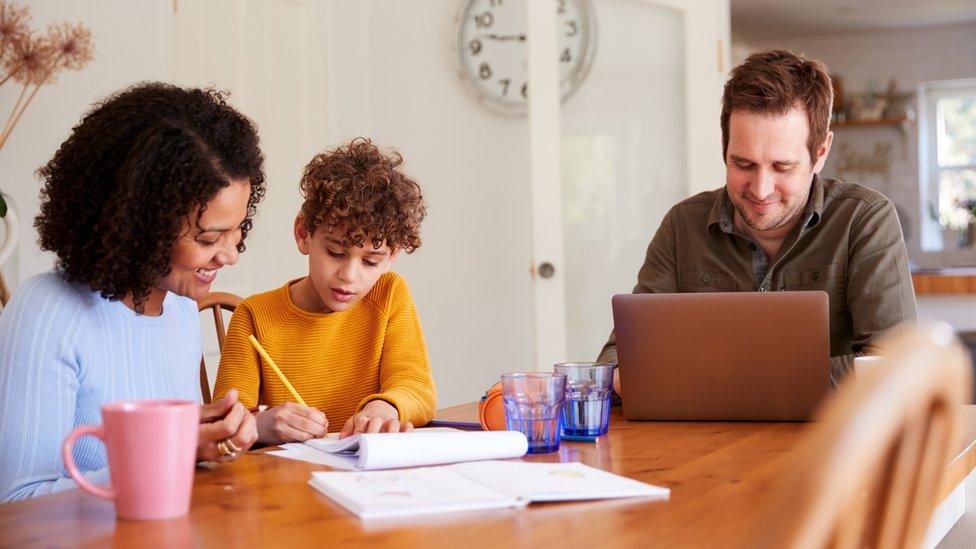
Schools are likely to be closed until August in a bid to tackle the spread of Covid-19.
Teachers have provided learning packs and online activities for students and many parents will want to help.
So what should parents be doing?
Education correspondent Jamie McIvor posed some common questions to a number of experts in Scottish education to get a sense of what they would advise.
None of this advice is statutory and there will be a range of different opinions. Parents with specific concerns should speak to their child's school, most practically via e-mail.
What should the priorities be for someone home educating?
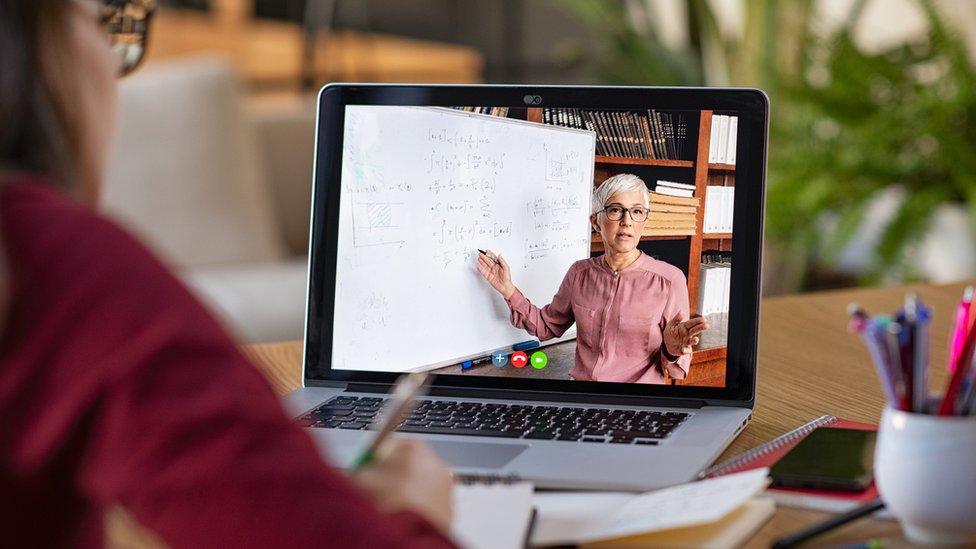
The key advice from many is that maintaining a degree of normality in the child's life is more important than worrying about a specific school subject.
This is an anxious and worrying time for everyone. Some children will be upset or feel lonely if they cannot see their friends as usual. Helping to keep a child happy and stimulated is the most important thing.
Many schools have provided learning packs or are putting material together online.
Schools are hoping that this will help provide educational opportunities and positive activities through the shutdown. But they are not expecting children to make progress as such. Teachers will get a sense of what stage children are at when they return to school and what sort of work will be appropriate for them.
If parents have a particular skill or interest in a field, they should concentrate on that and not on something they are less confident in. Children can sense if an adult does or does not enjoy something.
How can I get a routine together?
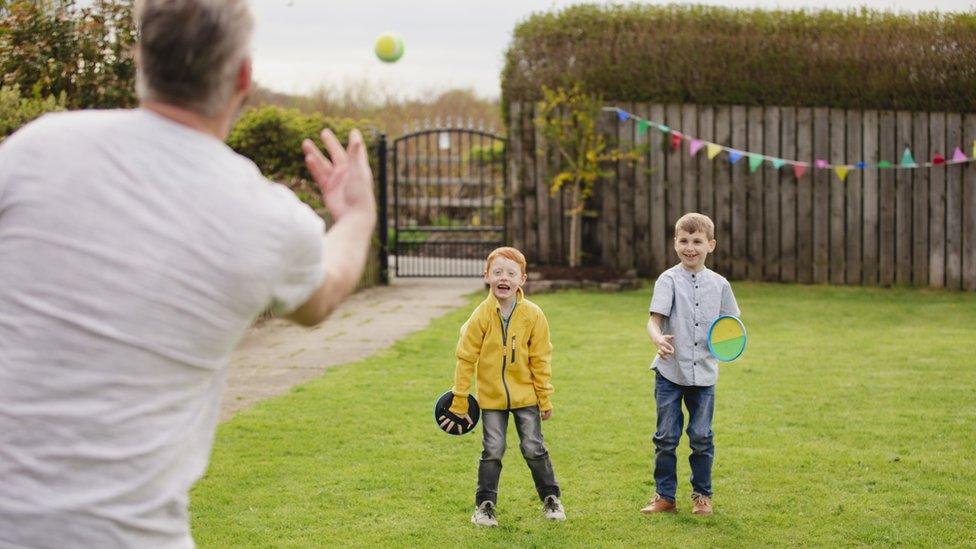
Getting some sort of routine together can be a great help - providing some structure to the day can help give a degree of normality. However, you should not feel it is necessary to run a full school day .
For instance, it might be an idea to set aside certain times in the day as "fixed points" - a certain slot for educational activities, a time for lunch and a certain time for the allowed outside exercise. It is vital to build in time away from screens. Activities should be in shorter blocks for younger children and can be repeated each day throughout the week.
The parent and child may come to find that they look forward to a particular activity.
A routine may prove to be good for keeping up morale and maintaining mental health.
What should I do if I can't help my child with something specific? (for example, long division)
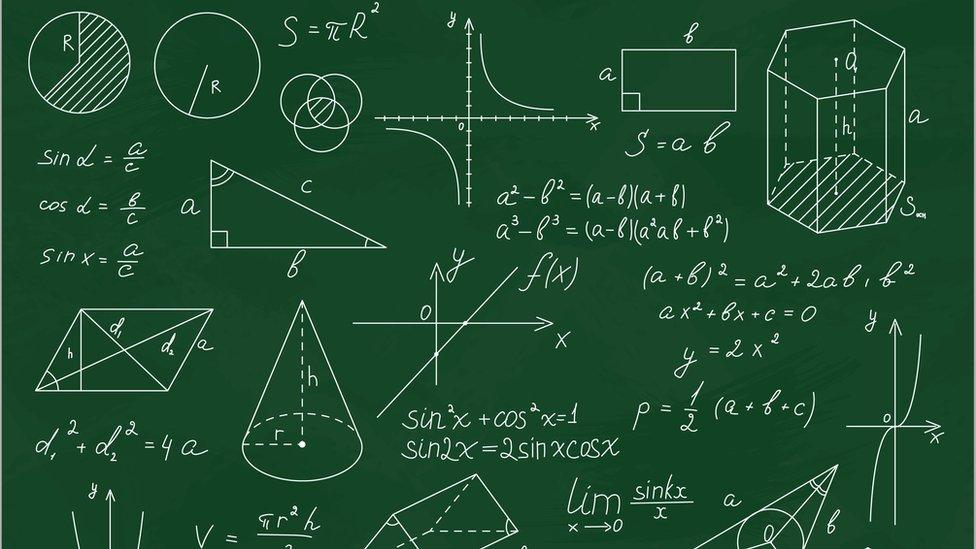
First, step away from the query. Reassure your child that you will find out the answer and then they can come back to it. Then ask the school - there will be contact arrangements in place. Perhaps your child could phone a friend? This could also be a good way to let them to have a chat with someone from beyond their four walls.
Obviously, if you are unsure how to do something, one of your own friends may know and be able to help.
But it's probably for the best not to worry unduly about this. Concentrate on the things you can help with.
When schools resume, they will not presume that the child has made any progress or learnt new skills during the shutdown. Rather, they will be trying as far as possible to pick up where they left off. Teachers will be aware that some students may have slipped back during their time off.
If you are worrying about more advanced work involving secondary school children - don't.
Secondary school teachers realise that parents are not normally going to be able to help their teenager with the skills or knowledge required for a Nat 5 or Higher course.
Am I doing enough? Am I doing too little?
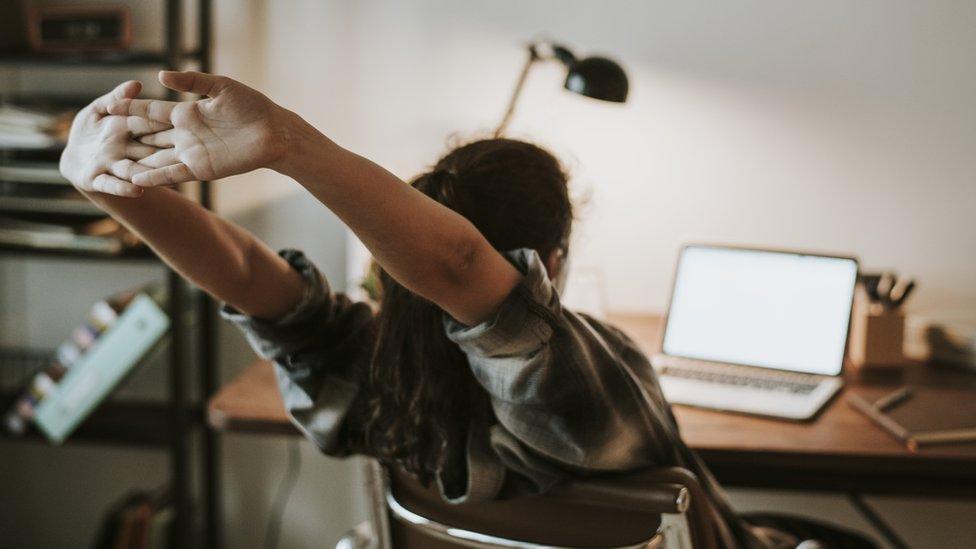
There is no easy answer to that. Often parents will instinctively know what seems right.
There are no rules around this at the moment. Parents know their own child and the best thing is to be guided by them and your own circumstances.
Doing too much may prove boring and counterproductive - especially when, in this difficult time, maintaining a child's morale and mental health is so important.
One thing you might want to do is prepare children for the "fuzzy" space that will occur between the current situation and the gradual return to normality.
I don't have internet access? What can I do?
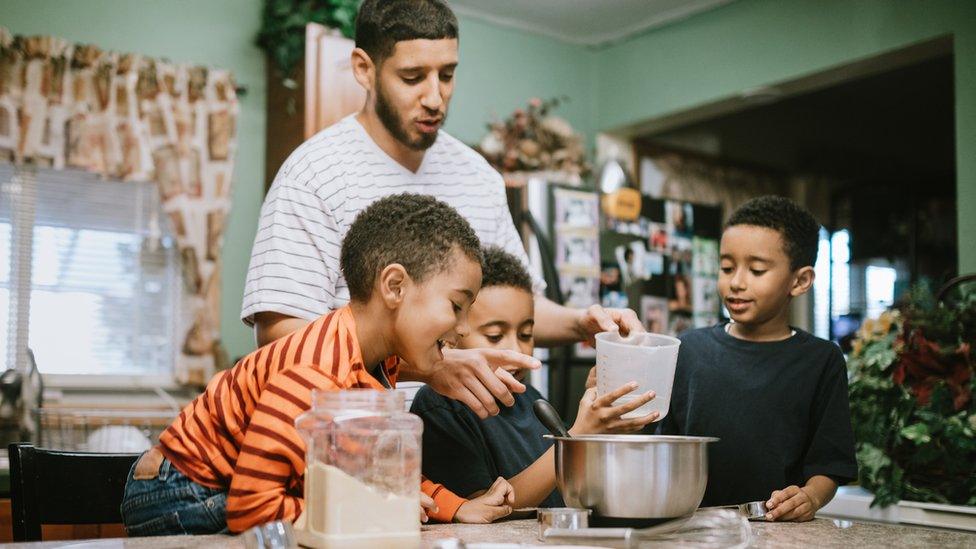
Many schools will have been aware beforehand of the children who cannot access the internet at home and made arrangements to try to help them. If this did not happen, then contact your school - they may be able to provide paper-based activities.
But there are a number of positive things children and parents can do - whether or not they have the internet - which don't involve going online. For example:
The BBC is showing educational programmes on the BBC Scotland channel each morning.
Reading a book or a story together.
Practising basic maths by adding up shopping bills, measuring the weights and volumes of ingredients when you are cooking.
Painting, drawing and crafts.
Watching other stimulating films or TV programmes together - such as well-written dramas and informative programmes - and perhaps discussing its content or style and what makes it so interesting or enjoyable.
Playing games which involve general knowledge, numeracy or literacy - some of the quiz shows on daytime TV may be helpful.
*This is general advice based on interviews with a number of teachers and respected figures within Scottish education. These include: Maureen McKenna, director of education at Glasgow City Council; Susan Quinn of the EIS union; Ollie Bray, former headteacher at Kingussie High School. The answers to the questions are written in general terms and do not necessarily represent their opinions. In this piece phrases like "home education" and "home schooling" are used to refer to what parents who normally send their children to mainstream schools are doing because of the coronavirus crisis. The advice here does not refer to what is expected in normal times of families who choose to withdraw their children from the school system and educate them at home.

A SIMPLE GUIDE: What are the symptoms?
AVOIDING CONTACT: Should I self-isolate?
LOOK-UP TOOL: Check cases in your area
MORE OF YOUR QUESTIONS: Answers on breastfeeding, pets and church

- Published20 March 2020
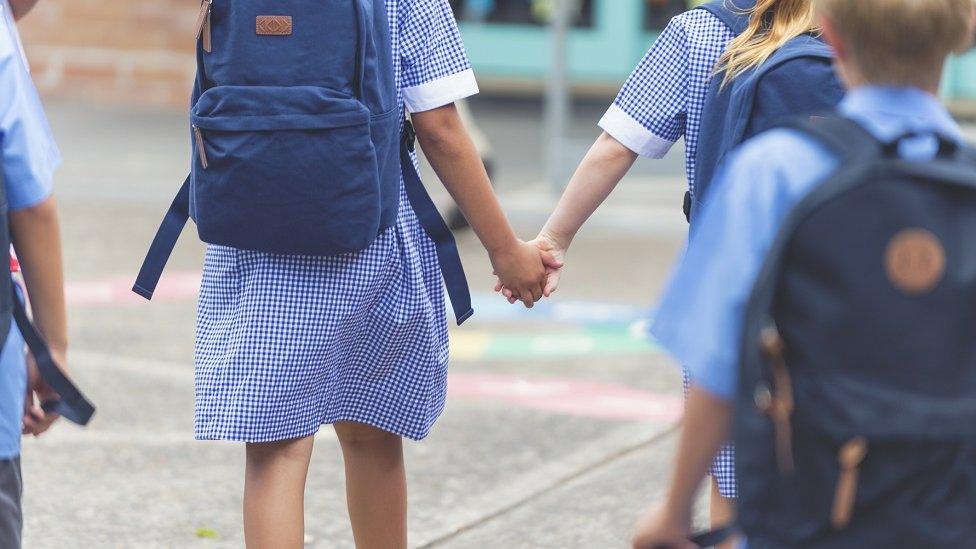
- Published19 March 2020
